Vaping became, and continues to be, a confusing activity in the United States when it was deemed the same as using other tobacco products. Unauthorized vapes continue to be sold online and in many stores across the country, the FDA regularly issues warnings and fines to retailers, yet vaping hasn’t been federally banned by the government.
We decided to take a look at the state of vaping in the U.S. in 2024, including which devices are being legally sold in 2024, what the FDA is doing to regulate the industry, and what the changes of the past few years mean for vapers nationwide.
Unauthorized Vapes: PMTAs Explained
You might have seen news stories about unauthorized e-cigarettes still being sold in 2023/24. But if vaping hasn’t been banned, why are vape devices being labeled as not authorized? It’s all to do with PMTAs.
Before introducing a new tobacco product to the U.S. market, a company must submit a marketing application to the FDA and receive authorization. This is the Pre-Market Tobacco Application (PMTA,) a lengthy, complex, and potentially expensive process that must provide scientific evidence that a product is appropriate for the protection of public health.
PMTAs were introduced in 2016 to coincide with the passing of the Deeming Rule. The Deeming Rule was the amendment to the 2009 Family Smoking Prevention and Tobacco Control Act that gave the FDA powers to regulate e-cigarettes, e-liquids, and many ENDS components as new tobacco products.
A New Tobacco Product is defined by the FDA as “any product not commercially marketed in the U.S. as of Feb. 15, 2007, or the modification of a tobacco product where the modified product was commercially marketed in the U.S. after Feb. 15, 2007,” it meant that every modern vape device or e-liquid, and even some vape components, required a PMTA, while almost every type of cigarette or traditional tobacco product was “grandfathered” (made exempt from the same requirements.)
Preparing a PMTA for even a single product is expensive. It’s not a process that will take just a few days (or even weeks) due to the reams of information required, including scientific studies and detailed product descriptions. The cost of preparing a single PMTA for a vape product has been estimated (by the FDA and others) as anywhere from $100,000 to well over $1 million.
The FDA’s simplified guidance on preparing a PMTA suggests that the following will be needed:
- Full reports of all information published or known to, or which should reasonably be known to, the applicant concerning investigations that have been made to show the health risks of such tobacco products and whether such tobacco product presents less risk than other tobacco products.
- Full statement of the components, ingredients, additives, and properties, and of the principle or principles of operation.
- Full description of the methods used in, and the facilities and controls used for, the manufacture, processing, and when relevant, packing and installation.
- An identifying reference to any tobacco product standard, if applicable. If so, either:
- Adequate information to show that such aspect of such tobacco product fully meets such tobacco product standard, or
- Adequate information to justify any deviation from such standard.
- Samples of the tobacco product as required.
- Specimens of proposed labeling and description of marketing plans.
Non-Tobacco Nicotine Products loophole
The Tobacco Control Act and the Deeming Rule were aimed at controlling tobacco products and tobacco-derived nicotine. The new legislation was worded in such a way that a loophole was left for some vape brands to exploit: Non-Tobacco Nicotine (NTN) or Synthetic Nicotine.
Companies that could prove that they only used synthetic nicotine fell outside of the new regulations and were able to continue to sell vapes and vape liquids even without an accepted PMTA. This led to a profusion of NTN products being launched by more than 200 separate brands.
The NTN loophole was eventually closed on April 14, 2022, after a bill was passed in Congress to amend the TCA to include “nicotine derived from any origin,” rather than only nicotine derived from tobacco plants.
E-cigarette Marketing Granted Orders (MGOs)
To be legally marketed and sold in the U.S., a tobacco product must receive a Marketing Granted Order following a successful PMTA. Since the passing of the Deeming Rule, this also includes e-cigarettes and related products.
Only 23 marketing orders were granted for e-cigarette products in 2022 and none in 2023. Those authorized products are all from just three brands.
In 2024 the FDA has authorized 11 new products. This brings the total number of authorized e-cigarette products and devices to 34. As of July 2024, the only e-cigarette products authorized to be legally sold in the U.S. are:
Logic
- Logic Regular Cartridge/Capsule Package
- Logic Vapeleaf Cartridge/Capsule Package
- Logic Vapeleaf Tobacco Vapor System
- Logic Pro Tobacco e-Liquid Package
- Logic Pro Capsule Tank Device x 2
- Logic Power Tobacco e-Liquid Package
- Logic Power Rechargeable Kit
About Logic
Logic Technology Development LLC is ultimately owned by Japan Tobacco Inc, one of the biggest tobacco companies in the world, with an annual turnover of more than $20 billion a year. In 2015, the company’s Canadian subsidiary, JTI-Macdonald Corp, was named in the largest class-action lawsuit in Canadian history. The company was eventually ordered to pay CA$ 2 billion in damages to help cover healthcare costs caused by smoking.
NJOY
- NJOY DAILY Rich Tobacco 4.5%
- NJOY DAILY EXTRA Rich Tobacco 6%
- NJOY ACE Device
- NJOY ACE POD Classic Tobacco 2.4%
- NJOY ACE POD Classic Tobacco 5%
- NJOY ACE POD Rich Tobacco 5%
- NJOY ACE Pod Menthol 2.4%
- NJOY ACE Pod Menthol 5%
- NJOY DAILY Menthol 4.5%
- NJOY DAILY EXTRA Menthol 6%
About NJOY
NJOY, one of the first major American e-cigarette brands, has been around since 2007. It is best known for producing devices that mimic the size and shape of cigarettes (often called “cig-a-like” vapes,) such as the NJOY King. It is now wholly owned by the Altria Group (formerly Phillip Morris Companies, Inc.), one of the largest and most profitable U.S. tobacco companies.
On the 27th of April 2022, NJOY Ace officially became the first closed system e-cig device and the first electronic atomization featuring ceramic coil to be approved by the FDA for a PMTA.
Vuse
- Vuse Vibe Device x 2
- Vuse Vibe Tank Original 3.0%
- Vuse Ciro Device x 2
- Vuse Ciro Cartridge Original 1.5%
- Vuse Solo Device
- Vuse Replacement Cartridge Original 4.8% G1
- Vuse Replacement Cartridge Original 4.8% G2
- Vuse Alto Device
- Vuse Alto Pod Golden Tobacco 5%
- Vuse Alto Pod Rich Tobacco 5%
- Vuse Alto Pod Golden Tobacco 2.4%
- Vuse Alto Pod Rich Tobacco 2.4%
- Vuse Alto Pod Golden Tobacco 1.8%
- Vuse Alto Pod Rich Tobacco 1.8%
About Vuse
The Vuse brand is part of Reynolds American (the second-largest U.S. tobacco company) but is ultimately owned by British American Tobacco. BAT is the largest tobacco company in the world, with annual revenues exceeding $27 billion. The tobacco giant has been involved in numerous controversies, including targetting advertising towards youth in Africa, oversupplying European markets, and most recently, allowing (or not preventing) the sale of cigarettes by a subsidiary to North Korea against U.S. sanctions.
FDA Enforcement Actions in 2023 and 2024
There was a considerable lag between the decision to include ENDS in legislation with other tobacco products in 2016, and vape brands having their PMTAs assessed and either approved or denied. During this time, in PMTA-limbo, vapes of all kinds were legally allowed to be sold.
The FDA says that 99% of the 26 million deemed product applications have now been processed. This includes nearly one million applications from Non-Tobacco Nicotine (NTN) products. Since the beginning of 2023, this has resulted in a significant rise in enforcement action.
2023
January 2023
- MDO issued for two Vuse menthol e-cigarette products: Vuse Vibe Tank Menthol 3.0% and the Vuse Ciro Cartridge Menthol 1.5%.
- Three IQOS heated tobacco products approved: Marlboro Sienna HeatSticks, Marlboro Bronze HeatSticks, and Marlboro Amber HeatSticks.
February 2023
- CMP complaints were issued to four e-cigarette manufacturers: BAM Group LLC, Great American Vapes LLC, The Vapor Corner Inc., and 13 Vapor Co. LLC.
March 2023
- Modified Risk Tobacco Product authorized for sale: Copenhagen Classic Snuff.
- Marketing authorization was denied for two Vuse Sole menthol e-cigarette products: Vuse Replacement Cartridge Menthol 4.8% G1 and Vuse Replacement Cartridge Menthol 4.8% G2.
May 2023
- MDOs issued for 6,500 flavored e-liquid and e-cigarette products submitted by 10 manufacturers, including Imperial Vapors LLC, Savage Enterprises, Big Time Vapes, SWT Global Supply Inc., Great Lakes Vapor, DNA Enterprise LLC dba Mech Sauce, Absolute Vapor Inc., and ECBlend LLC.
- Marketing denied to over 250 flavored and tobacco-flavored e-liquids.
- Warning letters were issued to two vape brands for popular disposable products: Shenzhen Innokin Technology Co. Ltd. (Esco Bars) and Breeze Smoke, LLC (Breeze.)
- More than 30 warning letters were issued to retailers/manufacturers for selling unauthorized products, including Puff and Hyde brand disposable e-cigarettes.
June 2023
- More than 180 retailers were warned over selling unauthorized products, including Elf Bar and Esco Bars.
- Import Red List alert placed on Elf Bar and Esco Bars products, allowing them to be seized and detained on importation, without physically examining it at the time of entry.
July 2023
- MDO issued for MyBlu menthol e-cigarette product: myblu Menthol 2.4%.
- Warning letters were issued to three distributors for selling or distributing unauthorized e-cigarette products, including Elf Bar/EB Design, Esco Bars, and Puff Max.
August 2023
- A warning letter was issued to Amarillo Snuff Co. for manufacturing, selling, and/or distributing unauthorized smokeless nicotine products.
- Warning letters were issued to 15 online retailers for selling unauthorized e-cigarette products designed to look like youth-appealing characters, school supplies, toys, and drinks.
September 2023
- Warning letters were issued to 18 retailers/distributors for selling or distributing unauthorized e-cigarette products, including Elf Bar, EB Design, Lava, Cali, Bang, and Kangertech.
- CMP complaints were issued to 22 retailers for selling unauthorized e-cigarette products, mainly Elf Bar/EB Design.
October 2023
- Marketing approval was denied for six Vuse Alto e-cigarette products: Three menthol-flavored and three mixed berry-flavored products, each in three nicotine strengths.
November 2023
- Warning letter issued to Nic Nac Naturals, LLC., for the marketing of unauthorized dissolvable nicotine products: Nicotine Mints (various flavors and strengths.)
- Warning letters were issued to seven online retailers for selling unauthorized e-cigarette products, including Elf Bar, EB Design, Bang, Cali Bars, and Lava.
- Warning letters were issued to seven online retailers for selling unauthorized e-cigarette products designed to look like youth-appealing toys and drink containers, including milk cartons, soft drink bottles, and slushies.
December 2023
- A permanent injunction was sought (with the DoJ) against the owners of Vape Junkie Ejuice for manufacturing, selling, and distributing unauthorized e-cigarette products.
- CMP complaints were issued to 25 online and brick-and-mortar retailers for the illegal sale of e-cigarette products, including Elf Bar, EB Design, and other e-cigarette products.
- Warning letters were issued to 11 online retailers for selling unauthorized e-cigarette products, including Lost Mary, Funky Republic/Funky Lands, Elf Bar/EB Design, Kangvape, Cali, and Breeze.
- 1.4 million units of unauthorized e-cigarette products seized (in collaboration with U.S. Customs and Border Protection) worth an estimated $18 million, including Elf Bar/EB Design, Lost Mary, Funky Republic, RELX Pod, and IPLAY Max.
- Warning letters were issued to three online retailers for selling unauthorized Luckee Vape Daniels e-cigarette products designed to look like bottles of alcohol.
2024
January 2024
- MDO’s issued for 22 SMOK brand products, including SMOK OSUB ONE, SMOK Nfix, SMOK RPM 40, SMOK SCAR-P3, and various pods, cartridges, and atomizers.
- MDOs issued for Suorin and Blu PLUS+ e-cigarette products, including Suorin Air device and cartridge, blu PLUS+ Battery, blu PLUS+ Carolina Bold 2.0%, Classic Tobacco 1.2%, Gold Leaf 1.2%, and Menthol 2.4%.
- MDO issued to Bidi Vapor LLC for its Bidi Stick Classic e-cigarette.
- CMP complaints were issued to 22 brick-and-mortar retailers for selling unauthorized Esco Bars e-cigarettes.
February 2024
- Warning letters were issued to 14 online retailers for unauthorized e-cigarette products, including Elf Bar/EB Design, Lava Plus, Funky Republic/Funky Lands, Lost Mary, Cali Bars, Cali Plus, and Kangvape.
- CMP complaints were issued to numerous brick-and-mortar retailers for selling Elf Bar disposable e-cigarettes.
- Warning letters were issued to five online retailers for selling unauthorized disposable e-cigarettes, including Elf Bar/EB Design/EB Create, Funky Republic, Lost Mary, Hyde, Breeze, and Cali Bars.
March 2024
- Warning letters issued to 61 brick and mortar retailers for selling unauthorized e-cigarette products. These products included disposable vapes from Elf Bar/EB Design and Lava.
April 2024
- FDA issued 119 warning letters and filed over 40 Civil Money Complaints (CMPs) against brick-and-mortar retailers. All of these enforcement actions concerned the sale of ZYN nicotine pouches to people under the age of 21. Three online retailers were also warned about selling ZYN pouches in unauthorized flavors.
- Marketing approval is denied for 65 MNGO Disposable Stick products. Shenzhen Yibo Technology Co. Ltd., the company behind the MNGO brand, can resubmit PMTAs again (as many times as they wish) but, in the meantime, cannot legally ship these products to stores.
- $20,000 USD fines handed out to 22 retailers who continued to sell unauthorized vapes. These unauthorized products were mainly EB Design (Elf Bar) branded vapes.
- FDA seized $700,000 USD worth of vapes from a warehouse in California. The seized products were predominantly flavored disposables from brands like Elf Bar/EB Design, Puff Bar, Esco Bar, Kuz, Smok, and Pixi, none of which have been authorized for sale or distribution in the United States. Several companies appear to have had ownership in the illegal vapes that were seized.
May 2024
- FDA issued warning letters to 14 online retailers for continuing to sell and market unauthorized vape products to consumers in the United States. The unauthorized vape brands identified in the letters include Elf Bar/EB Design, Esco Bars, Funky Republic, Hyde, Kang, Cali Bars, and Lost Mary.
June 2024
- Follow up inspections lead to fines for 10 retailers who continued to sell unauthorized products, even after receiving warning letters. The stores were found to still be selling products such as Elfbar’s and EB Design disposables. The types of stores fined include smoke shops, vape stores, mini-marts, and gas stations.
- FDA warns six online retailers for selling unauthorized e-liquids by the brand BAD Drip, which are packaged in bottles resembling prescription drug bottles.
- FDA and DOJ action leads to entry of Consent Decree of Permanent Injunction against manufacturer of unauthorized e-cigarettes. Boosted LLC and Cory Vigil, owner of Boosted LLC, are prohibited from manufacturing, selling, or distributing any new tobacco products until they meet certain requirements. The defendants were previously warned they were in violation of the FDA’s premarket review requirements for manufacturing, selling, and distributing new tobacco products by failing to first obtain marketing authorization from FDA.
- Four new menthol-flavored vape products have been granted marketing authorization, as of Friday, June 21, 2024. All four of these newly authorized products belong to the NJOY e-cigarette brand, a subsidiary of Altria, one of the largest tobacco companies in the world. Of note is the fact that these are the first ever non-tobacco flavored products to meet the rigorous FDA standards for safety and risk reduction that are required for an MGO to be given.
- Unauthorized e-cigarettes worth an estimated $1.08 million were seized upon entry into the United States in the last week of June 2024. The shipment of approximately 53,700 vapes, which Customs and Border Protection intercepted at the Port of Chicago, originated from China and was destined for a wholesaler in Mississippi.
July 2024
- On July 2, 2024, Soul Vapor LLC, a West Virginia-based company, and the company’s owner, Aurelius Jeffrey, were barred from directly or indirectly manufacturing, distributing, selling, and/or offering for sale any new tobacco product that has not received marketing authorization from FDA. The court also ordered Soul Vapor and Mr. Jeffrey to destroy e-cigarette products that were manufactured by Soul Vapor and are in their custody, control, or possession.
- The FDA authorizes marketing of Vuse Alto tobacco-flavored e-cigarette pods and accompanying power unit.
- Warning letters issued to 80 retailers across 15 states for the sale of e-cigarette products. Agency inspections found that all 80 of the brick-and-mortar stores were selling unauthorized disposable vapes made by brands believed to be popular with young people. The devices mentioned in the warning letters, issued on July 25th, 2024, are predominantly Elf Bar and Lost Mary, including Elfbar Gumi and Lost Mary Lemon Mint.
- FDA warns 5 online retailers for selling unauthorized “youth appealing” e-cigarettes from brands such as Geek Bar, Lost Mary, and Bang. The warned retailers include Smoke and Vape Company, LLC d/b/a Smoke and Vape Co.; Smoking Vibes LLC d/b/a Smoking Vibes; Cavalry Industries d/b/a Select Vape; HTXW LLC d/b/a FOMO Culture; and Global Supply Allies Inc. d/b/a Vapor Grab.
September 2024
- FDA issues warning letters to six retailers and manufacturers after Center for Tobacco Products (CTP) staff observed the promotion or marketing of unauthorized e-cigarette products at a tobacco/vape industry trade show. Five more warning letters were issued alongside those resulting from the trade show investigation. These letters targeted online retailers for selling unauthorized e-cigarette products popular with youth, including products marketed under the brand names Breeze, Mr. Fog, and Raz.
October 2024
- The FDA and U.S. Border Protection seize around 3 million unauthorized vape products worth an estimated $76 million. The seized shipments, all of which originated in China, contained vape products from various brands, including highly popular Geek Bar disposables.
- FDA issues warning letters to nine online retailers and one manufacturer over the sale or distribution of unauthorized e-cigarettes that have features normally associated with smart technology. Several different designs and functions were highlighted in the warning letters, including devices that feature video games, connect to a smartphone, receive text or call notifications, play music, or personalize products with custom wallpaper.
November 2024
- Fines are handed out to a total of 18 vape retailers, including 16 online stores and two brick-and-mortar establishments, after FDA warning letters were ignored. Each violation can cost the guilty party $21,348.
December 2024
- The FDA issues over a hundred warning letters to brick-and-mortar retailers for selling unauthorized e-cigarette products. A total of 115 stores, including vape stores, smoke shops, convenience stores, and mini marts, are told to stop selling almost exclusively Chinese-made disposables. Stores all across the United States have been targeted, in cities as far apart as Denver, Austin, Memphis, Indianapolis, Spokane, Richmond, Baltimore, Los Angeles, and many others.
State-level Vape Bans
Although the changes in government legislation and the disinclination by the FDA to authorize all but a handful of devices might feel like a ban, neither the sale of vapes nor vaping is currently banned federally in the United States.
However, states and even individual cities do have the power to impose bans on vaping. This can include restrictions on where vaping is allowed, bans on physical or online sales, or bans on flavors other than tobacco or menthol.
You can read more about state-level bans in our Guide to U.S. and International Vape Bans.


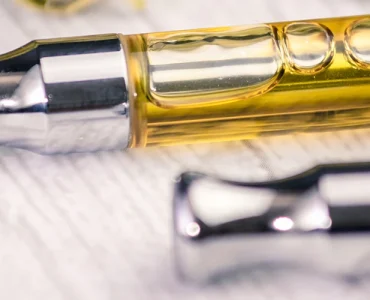
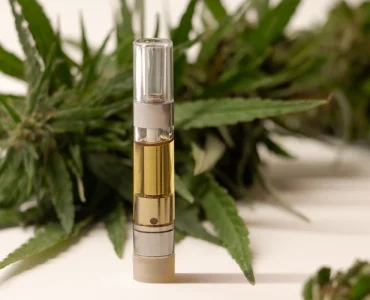
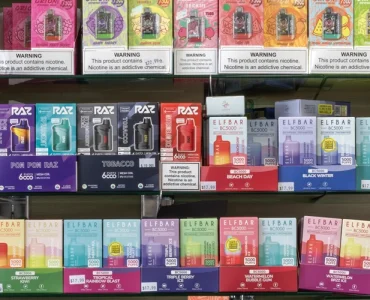
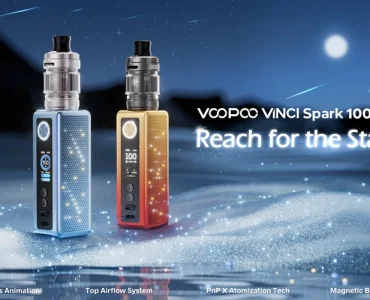
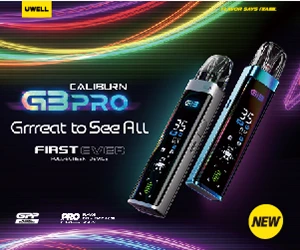
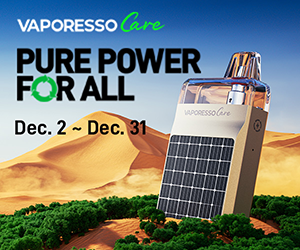
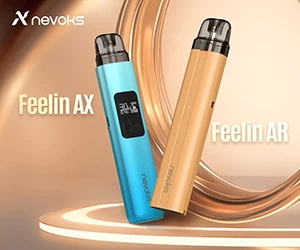
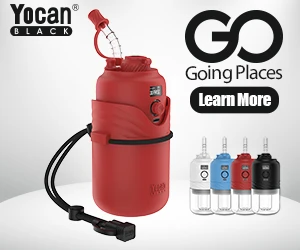
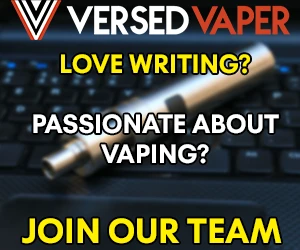
the only brands allowed to sell are ones owned by the biggest tobacco companies!!! this american government is out of control. im so fed up with this corruption.
these vape companies should publish their recipes so everyone can see how easily they can make their own juice. its just unflavored nicotine, either vegetable glycerin or propylene glycol, and flavoring. just mix together and stir. easy as can be. I quit smoking because of e-cigarettes 20 years ago and i cannot stand tobacco flavored vape juice. this is absolutely ridiculous!!! i will quit vaping before I go along with this corrupt government.